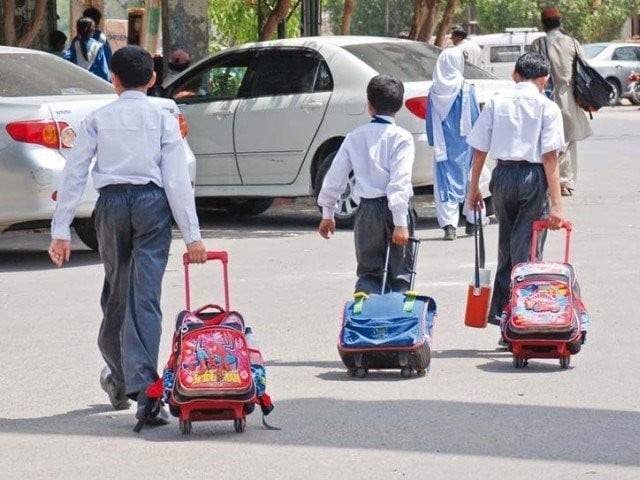WHO guidelines sought to reopen schools
Activists say decision should be guided by risk-based approach

PHOTO: FILE
This was demanded by civil society leaders in a statement on Monday.
The statement said that in response to the novel coronavirus (Covid-19), countries around the world have implemented several public health and social measures (PHSM), such as restricting movement, closure of schools and businesses, and international travel restrictions.
The statement read that protection of children and educational facilities are particularly important. Precautions are necessary to prevent the virus from potentially spreading in schools. It further demanded that schools should not reopen unless key safety measures are in place.
In this regard, they said that the World Health Organisation (WHO) and United Nations Children's Fund (UNICEF) has issued guidance on the prevention and control of Covid-19 in schools. Factors to consider in a general health risk assessment include epidemiological factors, health system and public health capacities, community engagement and government capacity to sustain social and economic support to the most vulnerable.
“Deciding to close, partially close or reopen schools should be guided by a risk-based approach to maximise the educational and health benefits for students, teachers, staff, and the wider community, and help prevent a new outbreak of the virus in the community,” said Blue Veins Programme Coordinator Qamar Naseem.
Peshawar-based child rights activist Imran Takkar said, “The crucial factor allowing school re-openings around the world has been the presence of well-functioning local test, trace, and isolate protocols.”
He added that inclusive and early collaboration between the school and the community is needed to develop and implement necessary measures.
Published in The Express Tribune, June 4th, 2020.













COMMENTS
Comments are moderated and generally will be posted if they are on-topic and not abusive.
For more information, please see our Comments FAQ